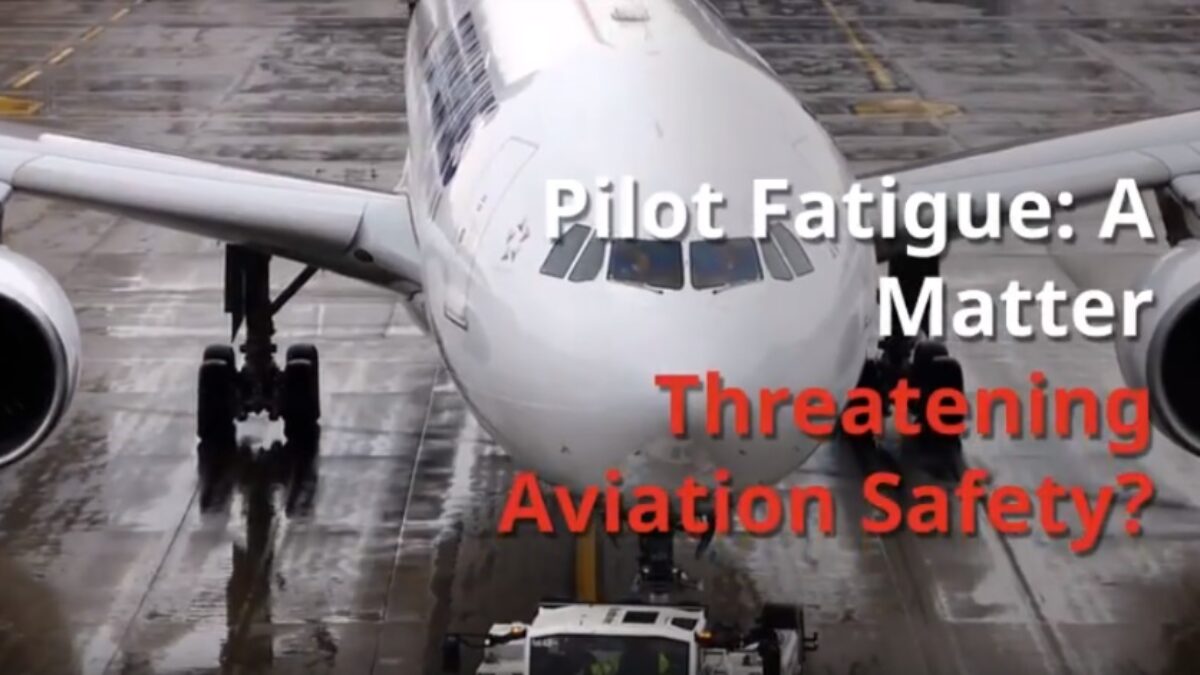Fatigue refers to a physiological state in which there is a decreased capacity to perform cognitive tasks and an increased variability in performance as a function of time on task.
Fatigue is also associated with tiredness, weakness, lack of energy, lethargy, depression, lack of motivation, and sleepiness.
Physical fatigue concerns the inability to exert force with one’s muscles to the degree that would be expected.
It may be an overall tiredness of the whole body, or be confined to a particular muscle group. Physical fatigue most commonly results from physical exercise or loss of sleep.
Physical fatigue often leads to mental fatigue.
Mental fatigue, which may include sleepiness, concerns a general decrease of attention and ability to perform complex, or even quite simple tasks with customary efficiency.
Mental fatigue often results from loss or interruption of the normal sleep pattern and is therefore of great concern to pilots and ATCOs, who are frequently required to work early in the morning or late at night.
Sleep patterns are naturally associated with the body’s circadian rhythms.
Shift patterns and transit across time zones can interrupt circadian rhythms.
For example, it may be difficult for flight crew or pilots on duty in the early hours of the morning or flight crew operating long-haul routes through multiple time zones to achieve satisfactory rest prior to commencing duty.
It is important to note that people are not the best evaluators of their own alertness state. They are often sleepier than they report.
There are three types of fatigue: transient, cumulative, and circadian:
- Transient fatigue is acute fatigue brought on by extreme sleep restriction or extended hours awake within 1 or 2 days.
- Cumulative fatigue is fatigue brought on by repeated mild sleep restriction or extended hours awake across a series of days.
- Circadian fatigue refers to the reduced performance during nighttime hours, particularly during an individual’s “Window of Circadian Low” (WOCL) (typically between 2:00 a.m. and 05:59 a.m.).
Accumulation of “sleep debt”, e.g. by having an hour less of sleep for several consecutive days needs a series of days with more-than-usual sleep for a person to fully recover from cumulative fatigue.
Fatigue usually results in impaired standards of operation with increased likeliness of error. For example:
- Increased reaction time;
- Reduced attentiveness;
- Impaired memory; and,
- Withdrawn mood.
In a pilot and an ATCO, fatigue may evident by:-
- Inaccurate flying;
- Missed radio calls;
- Symptoms of equipment malfunctions being missed;
- Routine tasks being performed inaccurately or even forgotten; and, in extreme cases,
- Falling asleep – either a short “micro-sleep” or for a longer period.
In an ATCO, fatigue may evident by:-
- Poor decision making;
- Slow reaction to changing situation;
- Failure to notice an impending confliction;
- Loss of situational awareness;
- Forgetfulness.
Contributory Factors for fatigues are:-
- Circadian adaptation, i.e. adjustment of the body internal clock (e.g. due to the shift pattern, jet lag, etc.)
- Length of previous rest period.
- Time on duty.
- Time awake prior to duty (duties that start in the evening are more likely to cause fatigue than those beginning at e.g. 8 a.m.)
- Sleep/nap opportunities (during the duty but also at layover destinations)
- Physical conditions (temperature, airlessness, noise, comfort, etc.)
- Workload (high or low)
- Emotional stress (in family life or at work)
- Lifestyle (including sleeping, eating, drinking and smoking habits) and fitness and Health.
